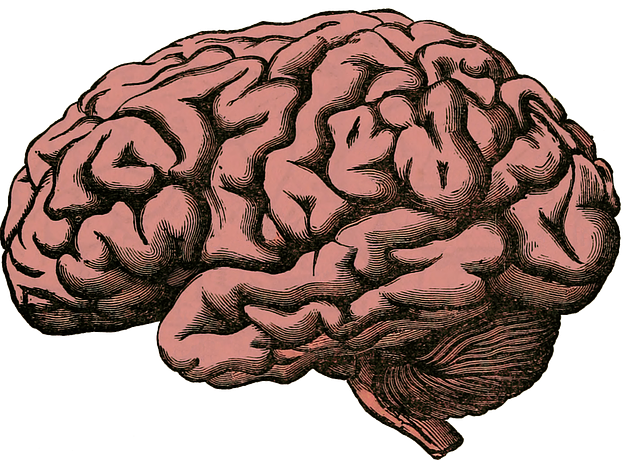Healthcare provider burnout, fueled by heavy workloads and long hours, negatively impacts mental wellness, patient care, and job satisfaction. Greenwood Village stands out with its specialized Greenwood Village ADD-ADHD evaluations therapy services, addressing burnout through strategies like emotional regulation journaling, exercise guidance, and trauma support. Preventing burnout is vital for maintaining a healthy work-life balance and high-quality patient care, especially for complex conditions like ADD/ADHD. Holistic approaches include self-care, stress reduction techniques, cultural sensitivity training, and compassion cultivation, fostering a more sustainable and satisfying clinical environment.
Healthcare provider burnout is a growing concern, impacting patient care and well-being. This article explores strategies to prevent burnout among healthcare workers, focusing on clinical settings and specialized services. Understanding the causes and effects of burnout is essential, especially in light of the high-pressure environment healthcare professionals operate in. We discuss effective approaches and highlight the value of specialized programs like Greenwood Village ADD-ADHD Evaluations and Therapy, offering tailored support to combat burnout.
- Understanding Burnout Among Healthcare Providers: Causes and Impact
- Strategies for Preventing Burnout in Clinical Settings
- The Role of Specialized Services: Greenwood Village ADD-ADHD Evaluations and Therapy
Understanding Burnout Among Healthcare Providers: Causes and Impact

Healthcare provider burnout is a growing concern within the medical community. It occurs when professionals experience prolonged periods of high stress and emotional exhaustion, often leading to detachment from work and reduced performance. Numerous factors contribute to this issue, including heavy workloads, long hours, emotional demands, and a lack of support. In Greenwood Village, ADD-ADHD evaluations and therapy services play a crucial role in addressing these underlying causes.
The impact of burnout is significant, affecting not only individual providers’ mental wellness but also patient care. Burnout can result in decreased job satisfaction, increased rates of depression and anxiety, and even physical health issues. It may manifest as cynicism, detachment from patients, reduced motivation, and impaired decision-making abilities. To combat this, healthcare professionals are increasingly turning to strategies such as journaling for emotional regulation, engaging in regular exercise guidance, and accessing trauma support services. Prioritizing mental wellness through these means is essential to maintaining a healthy work-life balance and ensuring high-quality patient care.
Strategies for Preventing Burnout in Clinical Settings

Preventing burnout is a critical aspect of maintaining a healthy and productive clinical setting, especially for healthcare providers working with complex conditions like ADD/ADHD. Greenwood Village, known for its thriving mental health community, offers various strategies to combat this issue. Firstly, encouraging professionals to prioritize self-care is essential; this includes adequate sleep, regular exercise, and engaging in activities outside of work to maintain a healthy work-life balance.
Additionally, developing coping skills and conflict resolution techniques can significantly reduce stress levels. Training sessions focused on cultural sensitivity in mental healthcare practice are also valuable, ensuring providers can navigate diverse patient populations effectively while maintaining emotional well-being. These holistic approaches, tailored to the unique needs of ADD/ADHD evaluations and therapy settings, contribute to a more sustainable and fulfilling clinical environment.
The Role of Specialized Services: Greenwood Village ADD-ADHD Evaluations and Therapy

In the ongoing effort to combat healthcare provider burnout, specialized services play a crucial role in addressing unique challenges like Attention-Deficit/Hyperactivity Disorder (ADHD). Greenwood Village offers comprehensive ADD-ADHD evaluations and therapy, acknowledging that mental health is integral to overall well-being. This initiative not only provides much-needed support but also fosters a culture of care within the healthcare sector.
Integrating compassion cultivation practices, crisis intervention guidance, and healthcare provider cultural competency training into these specialized services empowers professionals to manage stress effectively, enhance patient interactions, and improve job satisfaction. By recognizing and addressing ADHD, healthcare providers can prevent burnout, ensuring they remain attentive, empathetic, and resilient in their duties.
Healthcare provider burnout is a pressing issue, but by understanding its causes and implementing effective prevention strategies, clinical settings can foster a healthier work environment. Integrating specialized services like Greenwood Village ADD-ADHD Evaluations and Therapy demonstrates a commitment to addressing underlying mental health concerns that can contribute to burnout. By prioritizing well-being and accessing available resources, healthcare providers can mitigate risks, enhance job satisfaction, and ultimately improve patient care.














